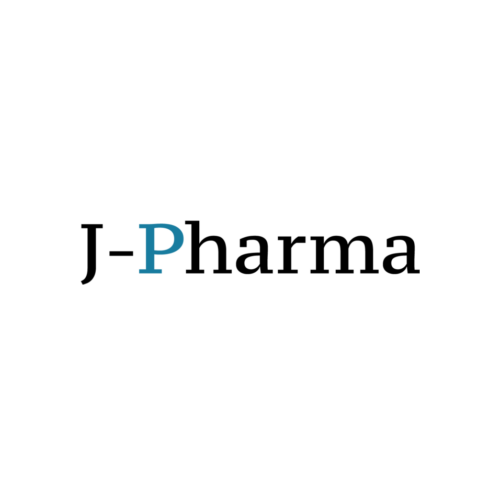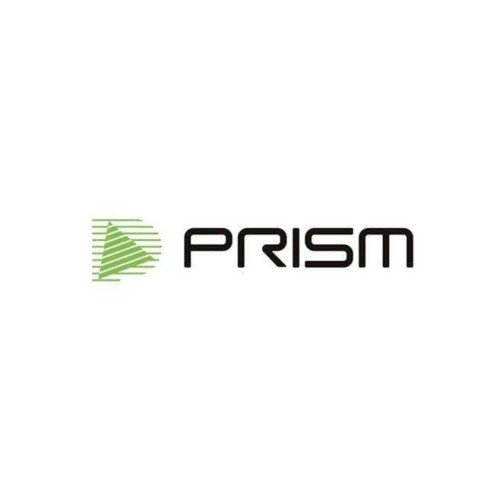Portfolio

SANTERO
SANTERO is a spin-off company from the Université libre de Bruxelles focused on the development of first-in-class antibiotics for the treatment of multi-drug resistant infections. With a mission to combat the growing threat of antimicrobial resistance, SANTERO is dedicated to revolutionizing the field of antibacterial therapeutics and improving patient outcomes worldwide.

Dim3
Dim3 is a digital healthcare company that has developed a CE marked clinical nutrition platform to monitor enteral and parenteral nutrition provided to patients in the hospital and at home, addressing systemic clinical malnutrition, optimising the quality of nutritional care and enabling personalized clinical nutrition decisions. The aim is to improve compliance with prescribed and dispensed clinical nutrition throughout the patient journey from hospital to home. The Dim3 solution is combining a software platform (Nutrow®) / Scorso®) aggregating, structuring and presenting data instantly to healthcare professionals, and an electronic device (Feedim®) connectable to enteral and parenteral nutrition pumps acquiring data.

Epics Therapeutics
Epics Therapeutics is developing first-in-class drugs in oncology based on RNA epigenetics. The company focuses on discovery and development of small molecule inhibitors of RNA-modifying enzymes.
Epics Therapeutics has also acquired assets from the ex-Ogeda GPCR discovery platform. The most advanced program is EP282 (GPR43/FFAR2): an oral small molecule for the treatment of gastrointestinal inflammatory disorders and cancer.

Synergia
Synergia Medical is pioneering optoelectronics for medical devices for neurostimulation, replacing the metallic wires of a traditional neurostimulator by optical fibers and using photovoltaic cells to convert light into electrical impulses. The device incorporates innovations in biomaterials, micro-electronics, optical components and biosensors. The first application is a neurostimulation device, which stimulates the vagus nerve, for the treatment of refractory epilepsy. Vagus nerve stimulation has been shown to reduce epileptic seizures by sending regular, mild pulses of electrical energy to the brain via the vagus nerve.

Acticor Biotech
Acticor Biotech is a clinical stage biotechnology company, spin-off of INSERM, dedicated to developing an innovative treatment in the therapy of acute thrombotic diseases, including ischemic stroke and pulmonary embolism. It has developed a product from a fragment of an antibody (Glenzocimab) targeting the platelet Glycoprotein VI to accelerate the thrombus dissolution rate in acute ischemic stroke treated with thrombolysis, without increasing the risk of bleeding. The product is developed as an add-on therapy to thrombolysis treatment in thrombo-embolic diseases. The two major ongoing clinical trials are the ACTIMIS project (a Phase IIa study, placebo controlled, to document safety in ischemic stroke and the ACTISAVE project (an international US – EU Phase II-III adaptive randomized placebo-controlled trial in ischemic stroke).

Sequana Medical
Sequana Medical is a commercial stage medical device company that has developed a fully implantable, connected medical device (Alfapump®) allowing to treat pathological fluid overload related to liver diseases, heart failure, malignant ascites and other fluid imbalance disorders. The first application of the device is the treatment of refractory buildup of fluid in the abdomen of end stage liver disease patients, making it possible to be treated mostly at home instead of having to come regularly to the hospital. As a second application (direct soldium removal, DSR), the company is investigating the use of its technology platform for the treatment of abnormal fluid overload in heart failure, using the DSR as a potentially life prolonging treatment option for chronic heart failure patients that have become resistant to diuretics (medications that remove fluid from the body) and for whom alternative treatment options have become very limited or have run out.

EditForce
EditForce developed a unique DNA/RNA editing technology, based on a pentatricopeptide repeat (PPR) protein platform technology, which has a distinct feature that enables the editing of not only DNA but also RNA, highlighting its difference compared to other technologies. It has different mechanisms to work and isolated intellectual property from other existing DNA/RNA editing technologies. RNA editing technology could be an intervention to treat diseases derived from RNA splicing abnormality and abnormal repeat-RNA sequence, or diseases known to result from mutations susceptible to cure by single base editing technology, which PPR could achieve. The platform technology is expected to be applied to a wide range of fields.

J-Pharma
J-Pharma develops novel pharmaceuticals based upon a human-genomic approach; an approach where people with specific diseases are treated with selective agents. J-Pharma’s intellectual property embraces the notion that cell membrane transporters are tightly associated to many diseases. In addition to drug molecules that target specific transporters, J-Pharma has discovered several important drug transporters within the human body that may be used to evaluate and optimize pharmacokinetics of new drug candidates. The company focusses on drug development targeting the L-type Amino Acid Transporter 1 (LAT 1) for Cancer and Autoimmune diseases. Products are JPH203 for the treatment of patients with Advanced, Refractory Biliary Tract Cancer, and OKY-034 for the treatment of patients with Advanced, Refractory Pancreatic Cancer. Another program is evaluating JPH203 and OKY-034 for the treatment of patients with autoimmune diseases. |

Aboleris-Pharma
Aboleris Pharma is developing new immunomodulators for immune mediated diseases based on its know-how on T cell regulatory function. The vision is to rebalance the ratio of effector (Teff, pro-inflammatory) and regulatory (Treg, anti-inflammatory) functions. Teff /Treg imbalance with a predominance of Teff is at the heart of tissue destruction and organ functional impairment in auto-immune diseases, including inflammatory bowel diseases, rheumatoid arthritis, systemic lupus erythematosus. The company’s lead program is a monoclonal antibody “anti-CD45RC” (ABIS-45RC) to deplete Teff cells and preserve Treg cells.

Deuteroncology
DeuterOncology is developing DO-2 or DO 2’s active metabolite DO 5: novel MET and RAS pathway inhibitors in the family of Epidermal Growth Factor Receptor (EGFR) inhibitors. Its initial focus is on the treatment of the exon-14 skipping mutant subset (3-4%) of Non-small Cell Lung Cancer (NSCLC) patients. Ultimately it is the company’s ambition to become the partner of choice for EGFR inhibitors in a range of indications including NSCLC, colorectal and pancreatic cancer.

Perseus Proteomics
Perseus Proteomics developed an antibody drug discovery platform based on phage display. It focuses on therapeutic antibody development targeting transferrin receptor (TfR) for various blood cancer diseases. The company licensed out 2 product candidates and possesses 1 internal product candidate (PPMX-T003) for development in Polycythemia Vera (excess prodution of red blood cells), a precursor to other hematological malignancies. in Japan. PPMX-T003 targets TfR that is expressed on the cell membrane and regulates cellular iron uptake in all cells, especially those manufaturing hemoglobin. The cellular iron uptake is essential for these cell survival and proliferation. The trial in polycythemia investigates the feasibility of reducing red blood cells to a normal level, avoiding the need for nedessary blood letting to avoid complications, such as uncontrolled hypertension and thrombotic episodes.

Neuvasq
NeuVasQ was founded based on new insights into the molecular mechanisms maintaining the integrity of the blood-brain barrier (BBB). The BBB regulates the exchange between the vascular system and central nervous system (CNS). Increased BBB permeability, due to age or injury, is involved in many neurological conditions through the leakage of harmful blood substances into the CNS. BBB dysfunction is a factor in many neurodegenerative disorders, such as Alzheimer’s, as well asmultiple acute neurological conditions like stroke and epilepsy.
The company will develop first-in-class pharmaceuticals exploring different therapeutic modalities based on gene, RNA, small molecules or antibody/protein construct. Proof-of-Concept data of Animal models for stroke and glioblastoma have been published in the academic journal “Science”.

Prism BioLab
PRISM BioLab focuses on developing technology for proprietary, small molecule, drug discovery for undruggable targets: PepMetics® - transforming the “undruggable” to “druggable” with the aim of finding cures for the incurable in the field of oncology, cirrhosis, gastrointestinal disorders... The company established a Library designed to mimic α-helix or β-turn peptides using a unique stable scaffold with corresponding dihedral angles. These motifs are essential for protein-protein interactions within the cell, especially related to transcription and translation. Several programs are under investigation amongst which: PRI724 (targeting CBP/beta-catenin) – licensed to Ohara Pharmaceuticals in the field of cirrhosis, E7386 ( targeting CBP/beta-catenin) – licensed to Eisai in the field of oncology, and internal pipelines in the field of oncology.

Cellaïon
Cellaïon aims to treat severe advanced liver inflammatory diseases defined as “Acute on Chronic Liver Failure” syndrome (ACLF). Its lead product HepaStem® acts as a cargo that delivers a potent secretome at the site of liver injury and inflammation, stopping the acute progression of such chronic liver diseases by controlling inflammation and restoring lost function, allowing the organ to regenerate. Hepastem® is administered by a simple peripheral intravenous infusion, and is tolerated.

AdipoPharma SAS
AdipoPharma leverages more than a decade of research on the Alström syndrome (ALMS), an ultra-rare monogenic disorder syndrome, which led to the identification of the intracellular target in the adipocyte, which can correct insulin resistance of type 2 diabetes, improve non-alcoholic liver disease and fibrosis. Based on this research, a first-in-class drug that reverses insulin resistance, the root cause of type 2 diabetes and related disorders, has been developed: "PATAS”. PATAS is a new, proprietary and patent-protected peptide that induces healthy lipid biosynthesis by the adipocyte, rapidly restoring glycemic control in patients with Type 2 diabetes by decreasing insulin resistance, and at the same time decreasing the risk for cardiovascular and renal co-morbidities. This novel therapeutic approach could be the first type 2 diabetes treatment to have a beneficial effect on insulin resistance, type 2 diabetes, pancreatic beta-cell plaque removal, liver steatosis and fibrosis, associated with a decrease of unhealthy ceramides levels.


